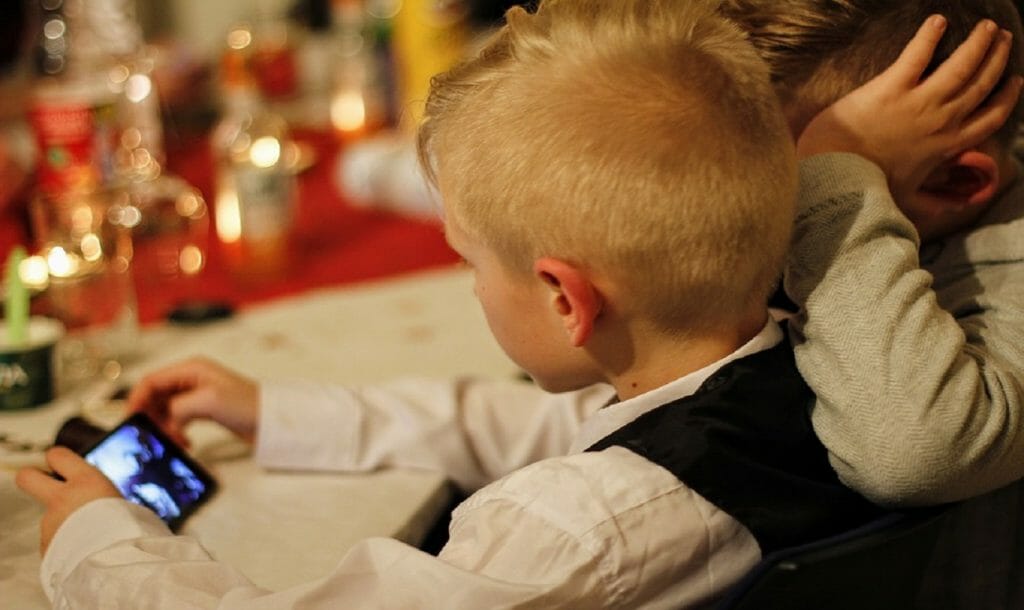Social media is known to have positive as well as negative effects on people. The effects are threatening when children get impacted by them. These days there are several parents monitoring social media usage of their kids. They keep an eye to know whether their young one’s online interactions are healthy or not.
There is a new and parallel world that exists along with the world we live in. That world is the world of social media. There are numerous social media platforms available today and everyone wants to have a presence on them. How can any world exist without children being a part of it? Social media has witnessed the same situation and for this reason and many others, social media sites have come up with their own age restrictions. Facebook doesn’t allow children below the age of 13 to have an account whereas the age restriction for WhatsApp is 16 years.
Why is an appropriate age important?
As a parent, it is important for you to understand why these restrictions exist. They are a part of your lookout as you are one of the parents monitoring social media. Apart from the law that guides, social media sites do not collect any kind of data from children under the age of 13. According to psychologists, 13 is also the age when the mind of the child starts to get developed. They start developing a broader understanding of the world and have more ability for complex thought. Despite the restrictions, many kids manage to join social media before they reach the prescribed age and become a potential prey to cyber-bullying. If their thinking is not developed and the child is still on social media they might deal with issues differently.
Impact on thoughts
Social media sites such as Instagram and Facebook can contribute to ‘Tweens’ becoming concerned about body image. They then start believing that they don’t look good enough or start believing in a certain standard of beauty. Parents monitoring social media of their kids can get to know about these changing thoughts of their kids.
Impact on mental health
Studies suggest that social media creates a negative effect on the mental health of young adults. A study at the University of Pittsburgh says that heavy social media users are three times more likely to be depressed than occasional users. Different studies suggest that social media has a threatening impact on sleep patterns and makes children question their self-worth.
What can you do to ensure that your child is on social media at the appropriate time?
Research
Do your own research by observing your child. Assess whether you think they are ready for this step or not. Talk to the parents of your kid’s friends and discuss your concerns with them and decide.
Use alternate sites
If you feel your kid is not ready for it yet, make them use alternate social media sites which would be friendly to them. You may find social media sites considered safe for children under the age of 13.
Discuss
Sit down with your kid and discuss the pros and cons of social media with them. Explain to them why you do not want them to join a particular social media site yet and assure them that after a certain age they would be allowed.
Parents Monitoring Social Media Usage Of Kids
If your kid still ends up joining social media when you were not in favour of it, following these steps can help you.

Privacy settings
Privacy settings can be helpful if talking to them did not work out. They might not control everything that your child does on social media but they will definitely restrict who views their activities. If they don’t know then teach them how to make the best of these settings. Guide them on what is meant for the public eye and what is not. Encourage them to keep checking the settings on a regular basis as well.
Be a guide, a friend and a follower
Try to be your kid’s friend and guide them while doing so. Be those parents monitoring social media but in a tender, friendly way. Kids tend to listen to friendly advice more than something that comes off from a source of authority. Be friendly with your advice and if possible, follow them on their social media account. You can later stop following them but try to keep an eye on them by being their friend initially.
Make them aware of the laws that protect them
When your kid is starting out on any social media platform you should inform them that there are laws that are protecting them. Tell them about cyberbullying laws so that if they go through any such incident, they do not think of hiding them from you.
Have access to their accounts
While you do follow them, having access to their accounts initially would also prove to be a benefit. By having access to their account you can keep track of who is following them, who they are talking to and whether the conversations and activities are healthy or not. This step might seem a breach to them but explain to them that you are doing it for a short span of time only.
Read more: The best friend you need: Technology






























